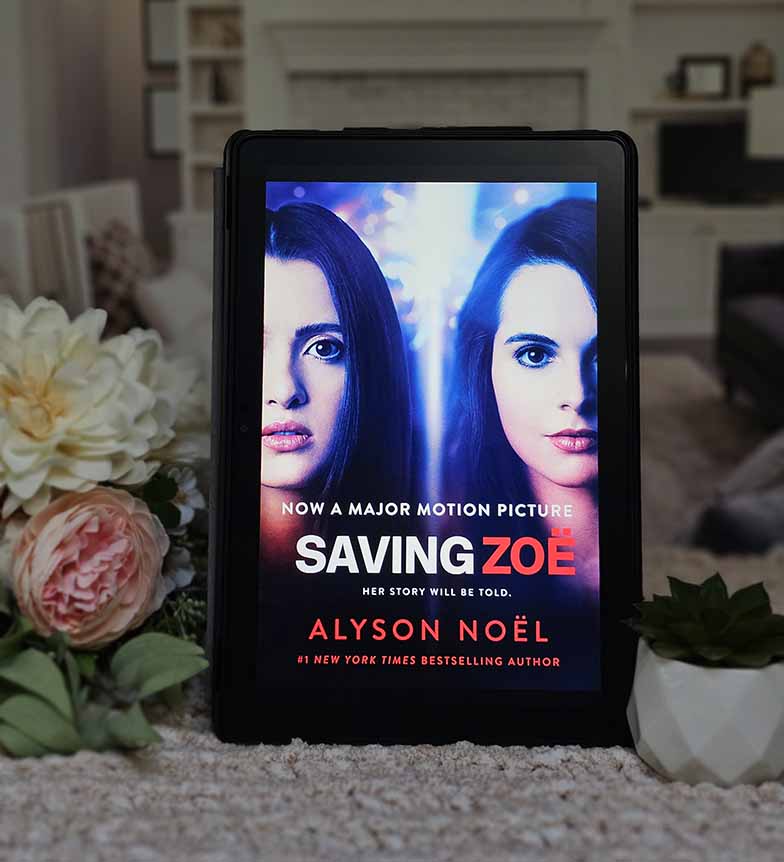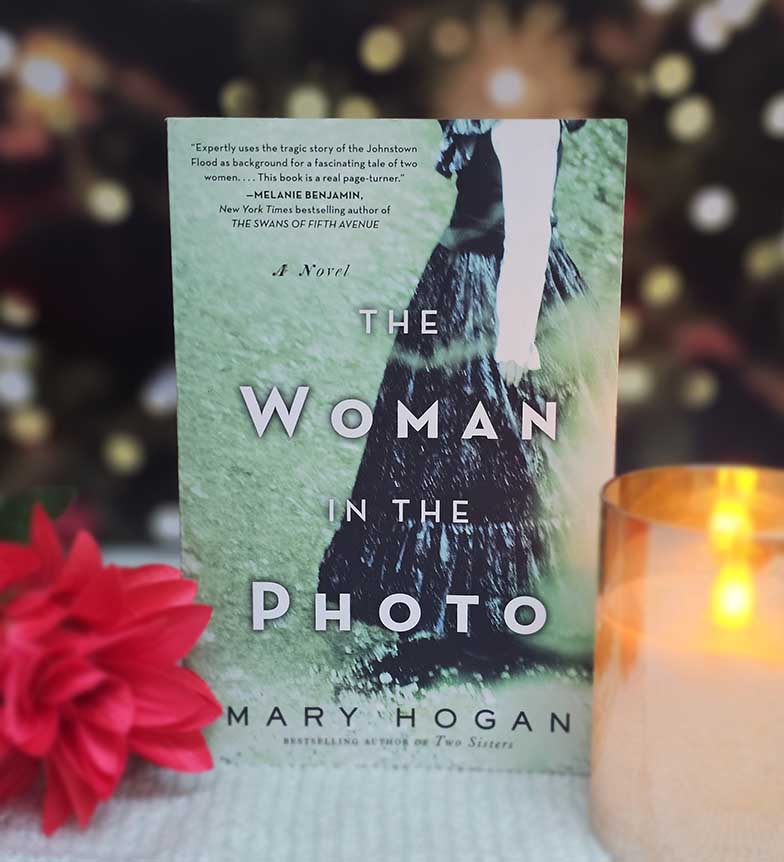
The Other Family
by Loretta Nyhan
When Ally discovers her husband has been leading a double life with another family, she must navigate the complex emotions of betrayal while determining what family really means.
Spoiler Warning
This review may contain spoilers. Read at your own discretion if you haven't finished the book yet.
When Everything You Knew Was Wrong: Navigating Betrayal and Redefining Family
The Other Family tackles one of contemporary life's most devastating scenarios—discovering that your spouse has been living a completely separate life with another family—with emotional honesty and psychological insight that transforms what could have been melodramatic premise into thoughtful exploration of marriage, trust, and the meaning of family itself. Loretta Nyhan avoids sensationalism to focus on the human complexity of betrayal and recovery, creating a domestic drama that feels both specific to its circumstances and universally relevant to anyone who has faced the shattering of fundamental assumptions about their life.
The Discovery: When Reality Collapses
The Moment Everything Changes
Nyhan skillfully portrays the surreal experience of having one's entire understanding of reality suddenly invalidated. Ally's discovery of Keith's double life creates the kind of cognitive dissonance that makes readers question their own assumptions about the people closest to them.
The author avoids dramatic revelation in favor of gradual, horrible understanding that feels psychologically realistic—the way devastating truths often emerge not as shocking moments but as accumulating evidence that can no longer be denied.
Processing the Impossible
The novel explores the psychological aftermath of betrayal on this scale, showing how the mind struggles to integrate information that contradicts everything previously believed about one's life and relationships.
Ally's emotional journey through denial, anger, bargaining, and eventual acceptance provides realistic portrayal of how people process trauma that fundamentally challenges their sense of reality and self-worth.
Character Development and Psychology
Ally: From Victim to Agent
Ally's character arc represents a journey from passive victim of circumstances to active agent in determining her own future. Nyhan avoids making her either perfectly sympathetic or unrealistically strong, instead creating a complex character who makes mistakes while learning to advocate for herself.
Her evolution from someone who defined herself primarily through her relationships to someone who discovers her own strength and preferences feels authentic and earned rather than imposed by plot requirements.
Keith: The Absent Presence
Though physically absent for much of the novel, Keith's character serves as crucial exploration of how people can compartmentalize their lives to the point of leading completely separate existences. Rather than presenting him as simple villain, Nyhan attempts to understand the psychology that enables such profound deception.
The gradual revelation of Keith's motivations and psychological patterns provides insight into how ordinary people can make choices that seem incomprehensible to others while feeling justified to themselves.
The Other Wife: From Enemy to Ally
The relationship between Ally and Keith's other wife evolves from expected rivalry to unexpected alliance, challenging cultural assumptions about how women should relate to each other in situations involving shared romantic partners.
This development allows the novel to explore how women's solidarity can emerge from shared experience of betrayal rather than competition for male attention or approval.
Exploration of Modern Marriage
Trust and Verification
The novel raises uncomfortable questions about the balance between trust and awareness in marriage, examining how much partners can realistically know about each other's lives and whether complete transparency is possible or desirable.
Ally's retrospective analysis of warning signs she missed provides insight into how people in long-term relationships develop patterns of attention and inattention that can enable deception.
Communication and Emotional Labor
The book explores how marriages can fail not through dramatic conflicts but through gradual erosion of communication and emotional connection, creating space for secrets and separate lives to develop.
The examination of emotional labor—who does the work of maintaining relationships and family connections—provides contemporary relevance to the story's themes.
Economic Dependence and Independence
Ally's financial vulnerability following Keith's betrayal illuminates how economic dependence can trap people in relationships and limit their options when those relationships fail.
Her journey toward financial independence becomes part of her larger journey toward self-determination and personal agency.
Family Structures and Definitions
Biological vs. Chosen Family
The novel explores how family relationships can emerge from circumstances rather than biology or law, showing how shared crisis can create bonds stronger than traditional family ties.
The connections that develop between the affected children and adults challenge conventional definitions of family while demonstrating how love and support can emerge from unexpected sources.
Parenting Through Crisis
The book addresses how parents can help children navigate family dissolution while dealing with their own emotional trauma, showing the complexity of maintaining stability for children while processing betrayal and loss.
The portrayal of how children adapt to changed family circumstances provides insight into resilience and the flexibility of family structures.
Community and Support Networks
The novel demonstrates how crisis can reveal the strength of community connections while also showing how shame and embarrassment can isolate people when they most need support.
Ally's journey toward accepting help and building new relationships reflects the difficulty many people face in reaching out during times of vulnerability.
Themes of Forgiveness and Healing
Forgiveness as Process, Not Event
Nyhan presents forgiveness as ongoing process rather than single decision, showing how healing happens gradually and unevenly rather than through dramatic moments of resolution.
The distinction between forgiving Keith for her own peace of mind and excusing his behavior provides nuanced understanding of how forgiveness can serve the forgiver without absolving the wrongdoer.
Anger as Legitimate Response
Rather than rushing toward forgiveness, the novel validates anger as appropriate response to betrayal while exploring how anger can be channeled constructively rather than destructively.
Ally's permission to feel and express anger becomes part of her journey toward self-advocacy and boundary-setting.
Healing Through Connection
The book demonstrates how healing happens through relationship and community rather than individual effort alone, showing how sharing experiences and receiving support facilitate recovery.
Contemporary Social Issues
Gender Expectations and Women's Responses
The novel explores how society expects women to respond to infidelity and betrayal, often pushing toward forgiveness and reconciliation without adequate consideration of women's own needs and desires.
Ally's resistance to pressure to "work things out" for the sake of family stability reflects contemporary discussions about women's right to prioritize their own well-being.
Economic Vulnerability and Single Motherhood
The book addresses practical realities of divorce and single parenthood, including financial challenges and social stigma that can complicate recovery from relationship betrayal.
Social Media and Privacy
The story touches on how social media can both expose secrets and create new forms of privacy invasion, reflecting contemporary concerns about digital life and relationship transparency.
Writing Quality and Narrative Technique
Emotional Authenticity
Nyhan's strength lies in her ability to portray complex emotions without oversimplifying or dramatizing them. The emotional journey feels realistic and relatable rather than manipulative or sensational.
Character Voice and Development
Ally's narrative voice evolves throughout the novel, reflecting her growing confidence and self-awareness while maintaining consistency with her character and circumstances.
Pacing and Structure
The novel balances the immediate crisis of discovery with the longer-term process of rebuilding, creating satisfying narrative arc that acknowledges both the drama of betrayal and the slow work of recovery.
Areas for Critical Consideration
Resolution and Realism
Some readers may find certain aspects of the resolution more optimistic than realistic, particularly regarding the speed of emotional healing and the development of new relationships.
Character Development Depth
While Ally's character is well-developed, some secondary characters could benefit from additional depth and complexity to match the nuanced portrayal of the main character.
Social Context
The book focuses primarily on individual and family responses to crisis, with less attention to broader social and economic factors that affect divorce and family restructuring.
Target Audience and Appeal
Women's Fiction Readers
The novel will particularly appeal to readers interested in realistic portrayals of contemporary women's experiences, especially regarding marriage, divorce, and single parenthood.
Book Club Potential
The complex themes around forgiveness, family definition, and women's relationships provide rich material for discussion and diverse interpretation.
Relationship and Family Dynamics
Readers interested in psychology of relationships and family systems will find thoughtful exploration of how families adapt to crisis and change.
Final Assessment
The Other Family succeeds in taking a potentially sensational premise and treating it with emotional honesty and psychological complexity. Nyhan has created a novel that acknowledges the devastating impact of profound betrayal while demonstrating the human capacity for resilience, growth, and the creation of new forms of family and connection.
The book's greatest strength lies in its refusal to provide easy answers to complex emotional and practical challenges, instead showing how healing happens gradually through relationship, self-advocacy, and the courage to rebuild life on new terms.
While not groundbreaking in its approach, the novel provides thoughtful, compassionate exploration of contemporary family challenges that will resonate with readers who have faced similar crises or who appreciate realistic portrayals of women navigating difficult life transitions.
Rating: 3.2/5 ⭐
Perfect for: Contemporary women's fiction readers, book clubs, anyone interested in family dynamics and relationship recovery
Consider carefully if: You prefer more dramatic or fast-paced narratives, or domestic family dramas don't appeal to you
My Notes & Takeaways
Key Themes and Emotional Journey
The Shattering of Assumed Reality: "Everything I thought I knew about my life turned out to be constructed on lies I never suspected existed."
Ally's discovery forces readers to examine how much of what we consider "reality" is actually assumption based on trust that may be misplaced.
Redefining Family: "Family isn't just about blood or marriage certificates. It's about who shows up, who cares, who stays when everything falls apart."
The novel explores how family structures can emerge from crisis and how chosen connections sometimes prove stronger than biological or legal ones.
Forgiveness vs. Boundaries: "Forgiveness doesn't mean forgetting. It doesn't mean accepting unacceptable behavior. It means freeing yourself from anger while protecting yourself from further harm."
The book navigates the complex territory between healing and self-protection, showing how forgiveness can coexist with firm boundaries.
Women Supporting Women: Despite the initial adversarial setup, the relationship between Ally and Keith's other wife becomes a source of strength rather than competition, challenging assumptions about female rivalry.
You Might Also Like

Saving Zoe
by Alyson Noel
After her sister Zoe is murdered, Echo struggles with grief and family secrets while trying to understand who her sister really was and what led to her death.

Little Fires Everywhere
by Celeste Ng
A riveting novel that traces the intertwined fates of the picture-perfect Richardson family and the enigmatic mother and daughter who upend their lives.

The Woman in the Photo
by Mary Hogan
A dual-timeline novel connecting a modern woman to her ancestor who survived the devastating Johnstown Flood of 1889.